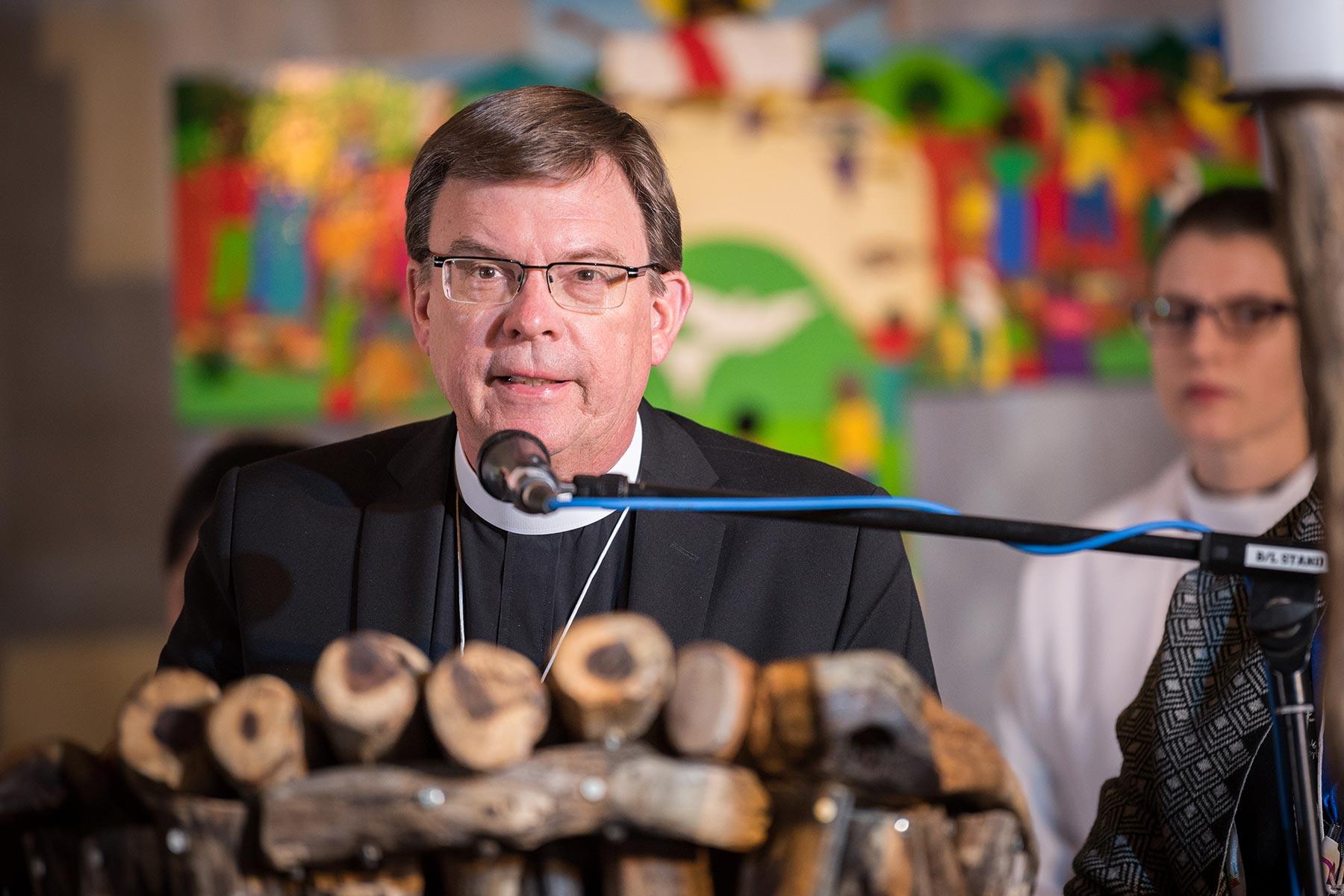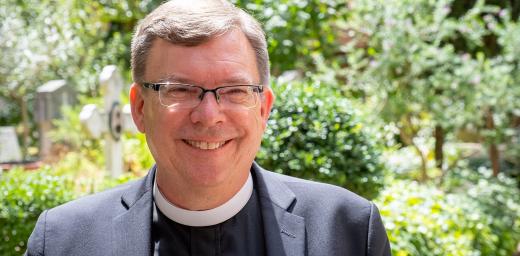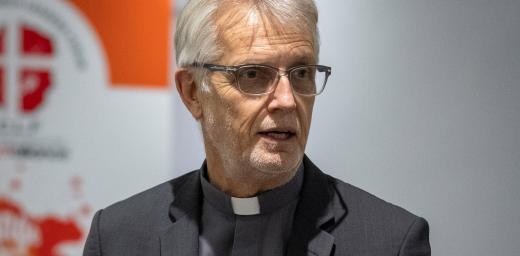“Ecumenism at the heart of life”
To mark the Week of Prayer for Christian Unity, LWF’s Assistant General Secretary for Ecumenical Relations reflects on the way we are freed by faith to love and serve our neighbors in need

Prof. Dr Dirk Lange speaking at the LWF Assembly in Namibia. Photo: A.Hillert/LWF
Growing together in faith and solidarity
This year’s theme for the Week of Prayer for Christian Unity, “You shall love the Lord your God ... and your neighbor as yourself” (Luke 10:27), situates ecumenism at the heart of life. The moving witness and powerful honesty of those on the preparatory team from Burkina Faso remind us that ecumenism is not simply for theologians and church officials but is an essential way of responding to life’s crises and hopes. It is not a lofty, theological ideal but a way of being – a Gospel response, a pastoral response – to the many situations in which all created beings find themselves.
Burkina Faso is “in a serious security crisis” and “has endured a proliferation of terrorist attacks, lawlessness and human trafficking,” leaving over three thousand dead and almost two million internally displaced, notes the introductory material for this year’s Week of Prayer. Amid this crisis, solidarity is growing between Christians, Muslims, and people of traditional religions. As Christians seek to witness to God’s love, the churches offer mutual hospitality, visiting each other, sharing worship, engaging in common projects. This growing solidarity is not only “ecumenical,” it is also interreligious. The text of Luke 10 is broad and generous. Yet, the churches also note that many challenges to unity remain. A basic lack of knowledge of one another leads to suspicion and there is the perennial concern that ecumenism implies a loss of identity and uniqueness, opening the doors to a formless, meaningless communion.
A unity that is already given
The honesty of this witness of the churches in Burkina Faso is refreshing. To name the fears, to acknowledge the fact that in the lives of our churches and communions, ecumenism remains too often an agenda item and not the core, the heart, of our witness is not to be a discouragement, but an admonition to respond to that prayer of Jesus for unity. When will all Christian churches realize that the gifts of faith, hope, and love imply solidarity, call to a reconciled life, draw us into the reality that we are all part of one human family, with creation, continually accompanied, nurtured, shaped and molded by the Holy Spirit?
The introductory material reminds us that Jesus prays for unity. Jesus doesn’t command unity, or legislate unity, or impose unity. Jesus prays for unity, a unity that is already given. Jesus prays that it become true for us, that it be witnessed in our lives and communities, that it defines our lives “so that the world may believe.”
To whom am I neighbor?
This engagement happens through faith, a faith born in Christ’s own solidarity with us, faith in God’s promise of love, faith in what God has done and is doing now. Through faith, we become part of Jesus’ prayer, leaving behind all that burdens us or holds us prisoner. Freed from all the constraints that the world and we ourselves impose upon us, hope arises within our hearts and we are able to love, to be a neighbor, to be a good Samaritan who sees Christ in the victims on the roadside.
Dietrich Bonhoeffer noted that Jesus’ response flipped the lawyer’s question around. Rather than asking, “who is my neighbor”, Jesus responds with the question we should be asking: “to whom am I neighbor?” It is the same question we hear in Matthew 25:40, “‘Truly I tell you, just as you did it to one of the least of these brothers and sisters of mine, you did it to me.” The allegorical reading of the Church Fathers, beautiful as it is, finds here a new reading: not Christ as good Samaritan, but Christ as victim.
Perhaps the ecumenical challenge is not about how we can love each other more, but how, as we pray together, we can recognize our needs, stretch out our hands together, and call upon God together, in every situation. About how, as we grow in faith, we can grow together in communion, in our reliance upon God and spontaneously (in an “unrestrained” manner Luther said) reach out to those suffering around us. As we step into their suffering together, our baptismal vocation is practiced and we enter ever more deeply into that mystery of communion that is the Church in God’s plan.





